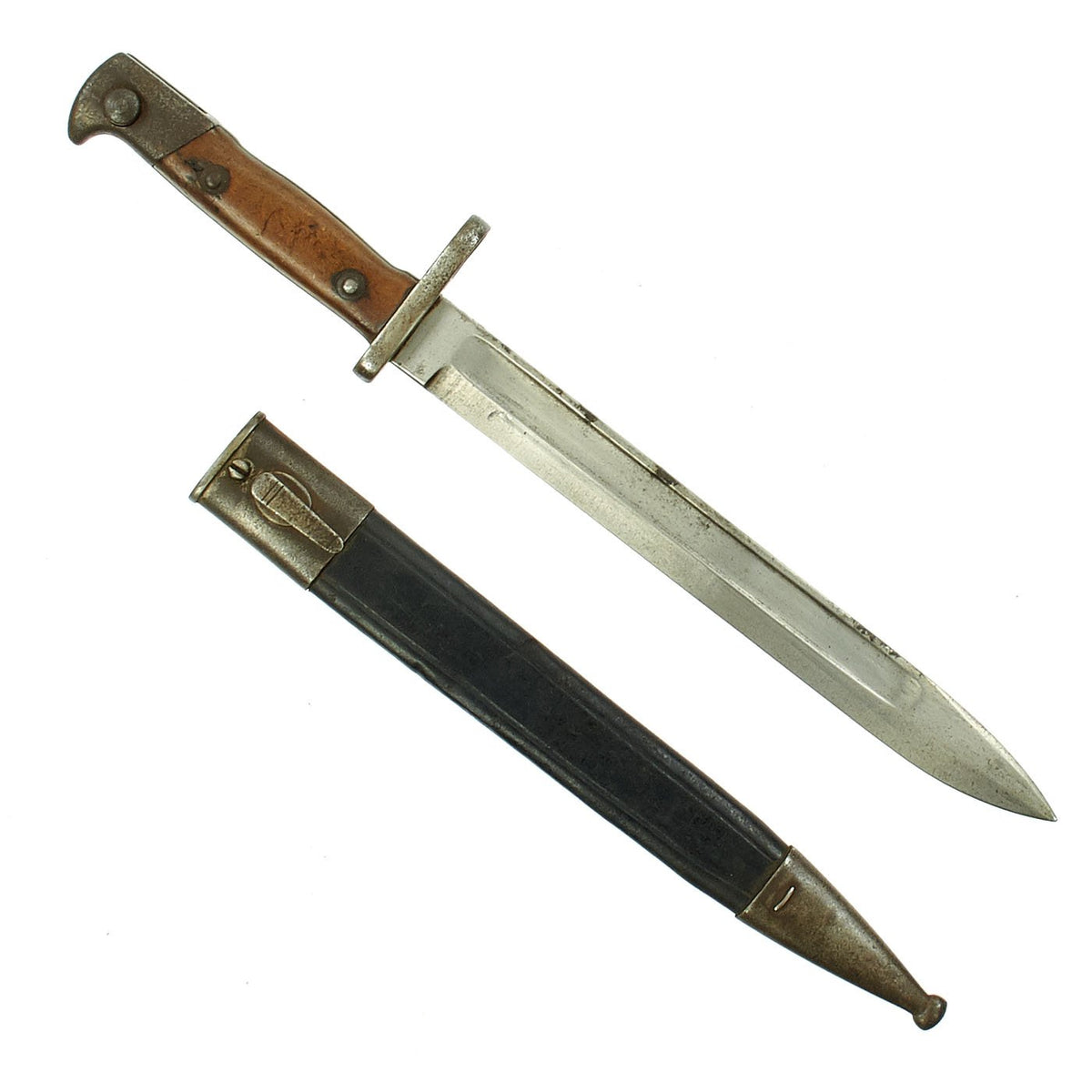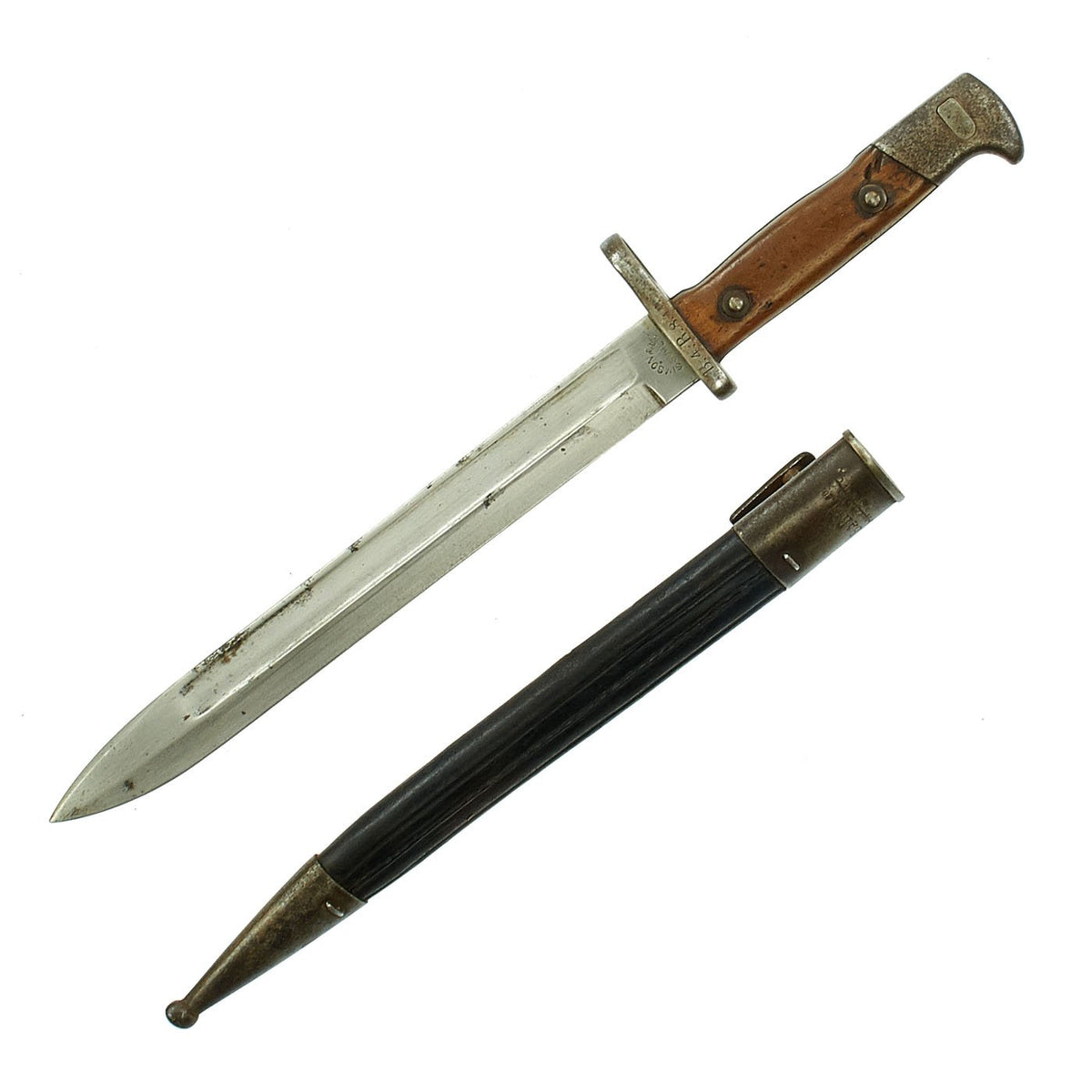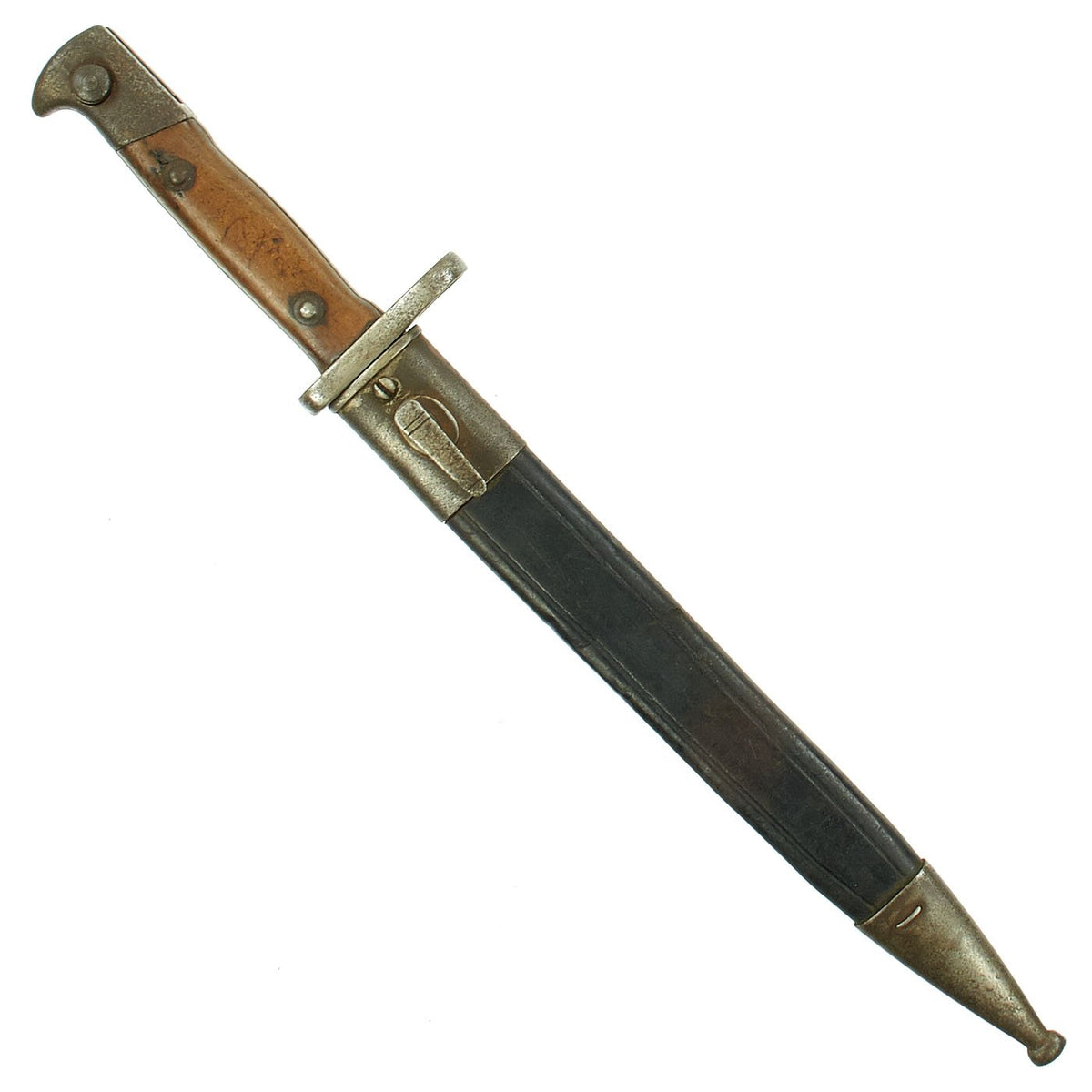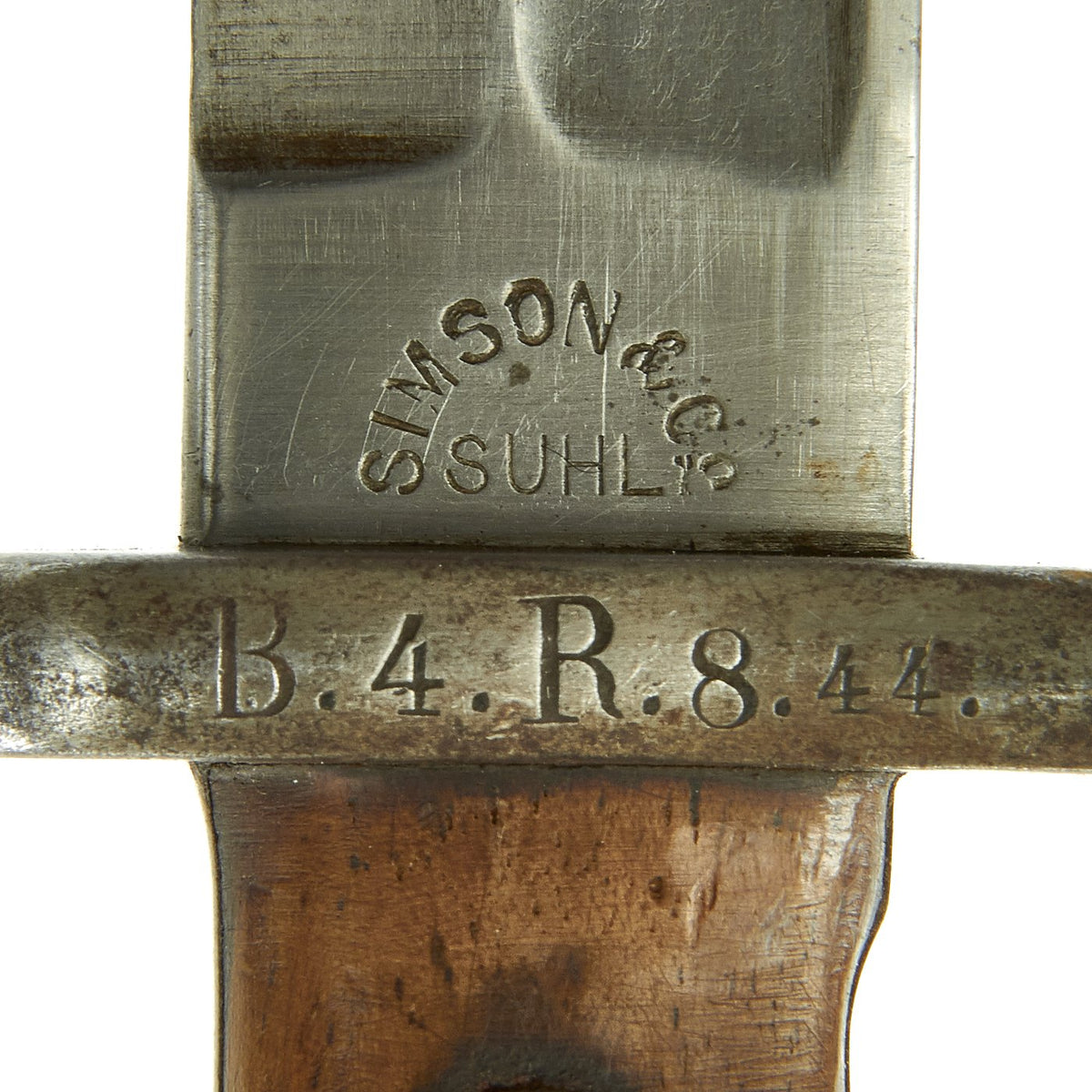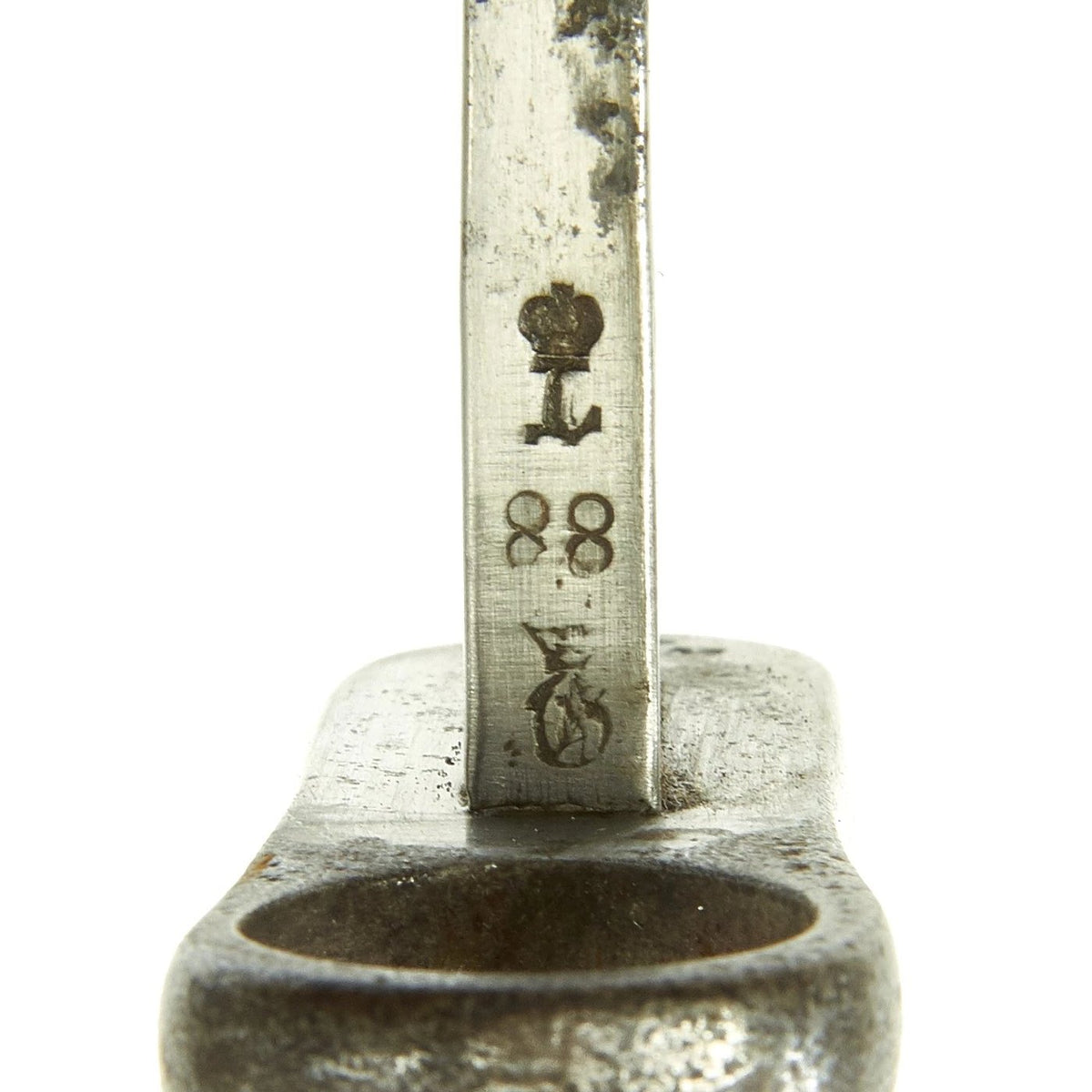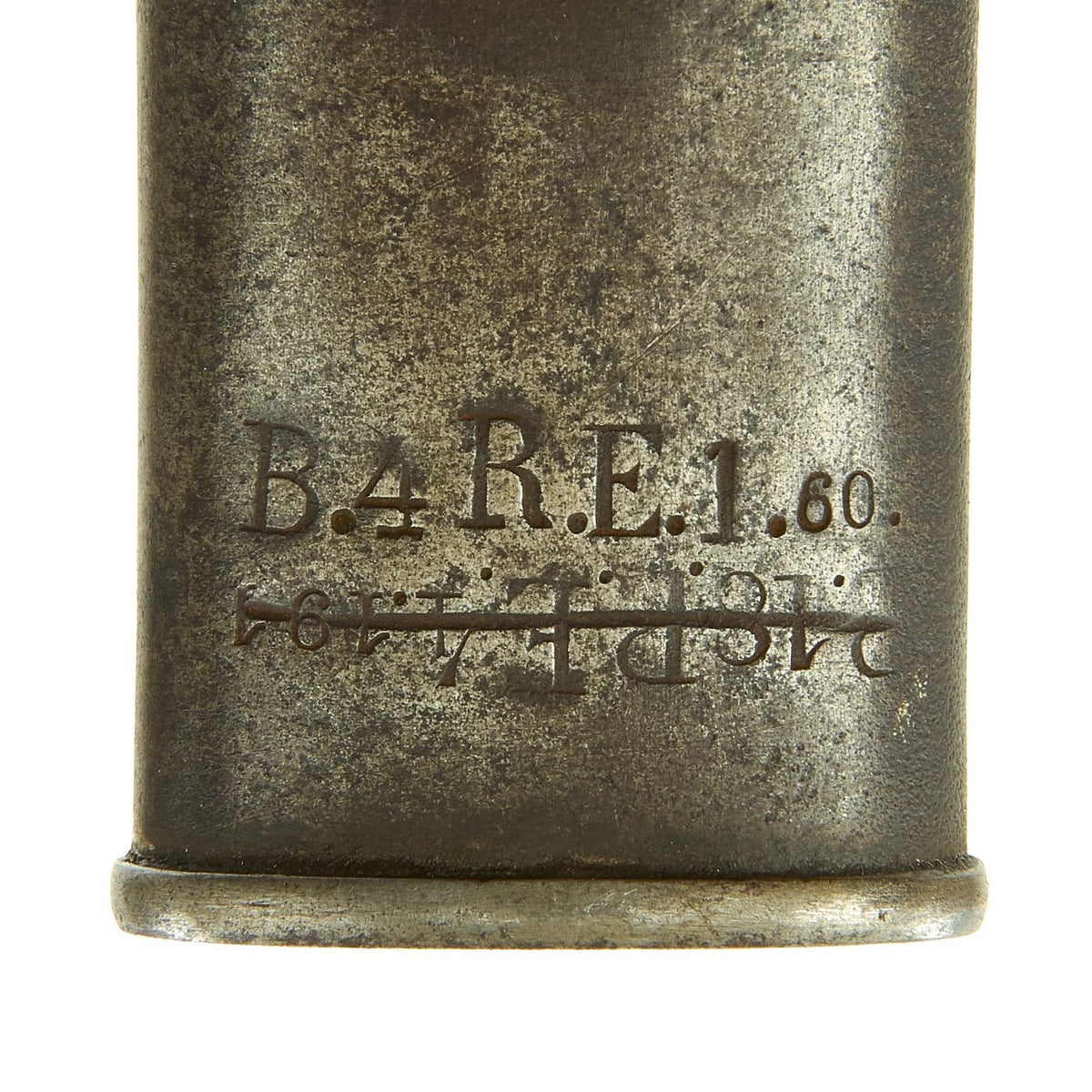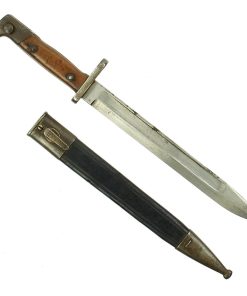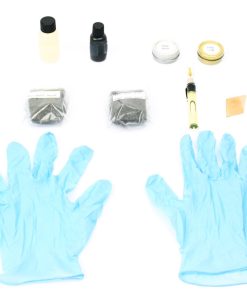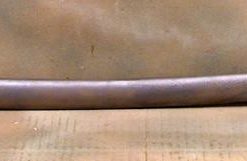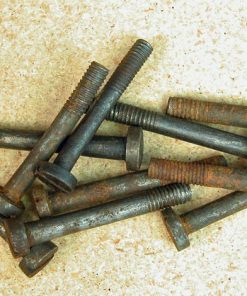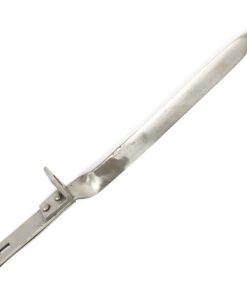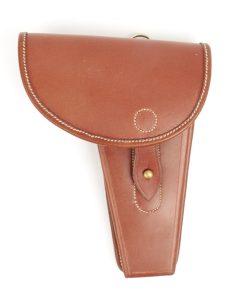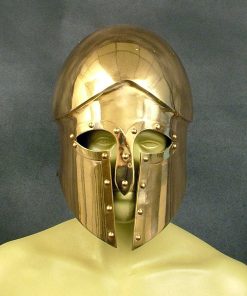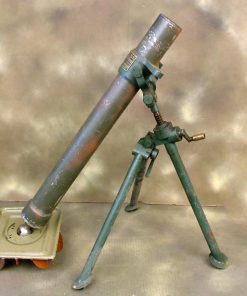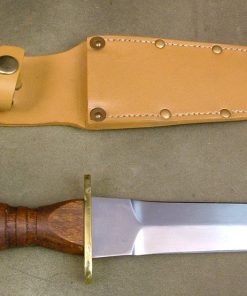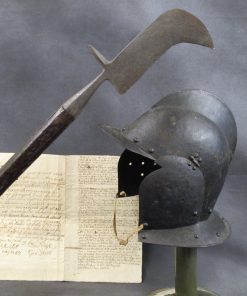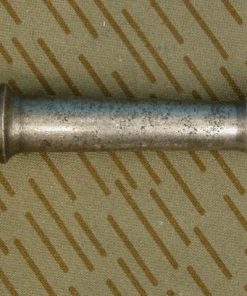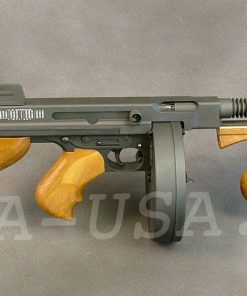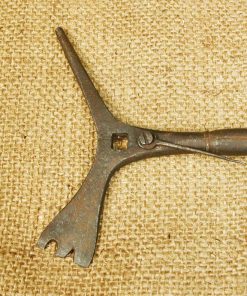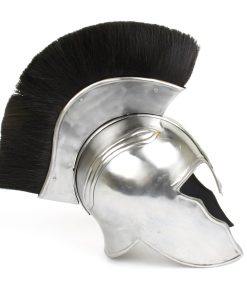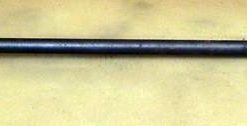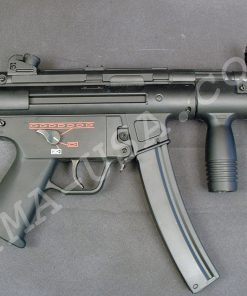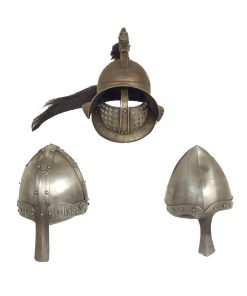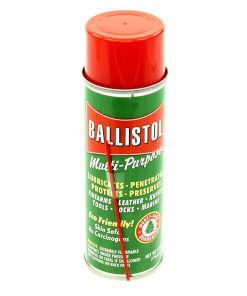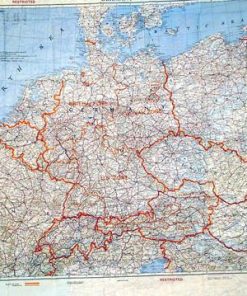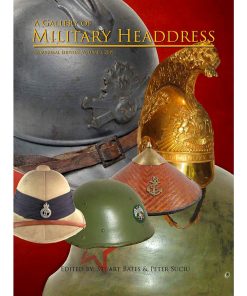Original German Mauser Model 1871/84 Rifle Bayonet by Simson & Co. of Suhl with Scabbard Original Items
$ 495,00 $ 148,50
Original Item: Only One Available. This is a very nice example of the rare Mauser Model 1871/84 rifle bayonet with scabbard, made for the kingdom of Bavaria and regimentally marked. The bayonet is in very good condition, with lots of clear markings. The M1871/84 was the first knife bayonet to become general issue in a major army, setting a trend that continues to the present day. Most of these bayonets were later altered into M1884/98 knife bayonets for the Gewehr 98 rifle, so finding one intact is extremely rare. This is the only example that we have had.
The steel blade is 10″ long and is in very good condition, with just a few small areas of pitting on the spine and other areas. It has been sharpened a bit, but still has a lot of the original factory machining marks. The blade ricasso bears the maker marking:
SIMSON & Co.
SUHL
Simson & Compagnie was the largest manufacturer of edged weapons and firearms in Suhl, Thuringia, during the second half of the 19th century. They manufactured a lot of bayonets under contract to various kingdoms in the German Empire, and also had numerous international contracts.
The Spine of this bayonet is marked (CROWN) / L / 88, indicating acceptance in 1888 by Bavaria. At that time, the official King was Otto, however he was judged mentally unfit to rule, and his uncle Prince Luitpold of Bavaria was appointed regent, so the royal monogram of an L was left in place.
The bayonet is also regimentally marked on the Cross guard in the typical German fashion, with B. 4. R. 8. 44 stamped below the maker mark. The scabbard also has regimental markings, with an older Bavarian mark struck through, and B. 4. R.E. 1. 60. stamped into it. These most likely indicate issue to the 4th Royal Bavarian Infantry “King William of Württemberg” Regiment.
A very nice example of this very rare bayonet and scabbard, fully marked and read to display!
The Mauser Model 1871 adopted as the Gewehr 71 or Infanterie-Gewehr 71, or “Infantry Rifle 71” (“I.G.Mod.71” was stamped on the rifles themselves) was the first rifle model in a distinguished line designed and manufactured by Paul Mauser and Wilhelm Mauser of the Mauser company and later mass-produced at Spandau arsenal.
Paul Mauser developed his bolt-action rifle from 1867 to 1871. During 1870–71 trials with many different rifles took place, with the “M1869 Bavarian Werder” being the Mausers’ chief competitor. The Mauser was provisionally adopted on 2 December 1871, pending the development of an appropriate safety. With support from the government’s Spandau arsenal, the improvements to the safety mechanism were completed and the rifle was formally accepted on 14 February 1872 as Infantry Rifle Model 1871 by the German Empire excluding Bavaria. General issue to troops began in late 1873 and all units had been converted by the spring of 1875.
The design was updated in 1884 with an 8-round tubular magazine designed by Alfred von Kropatschek, making this Germany’s first repeating rifle. This version was designated the Gewehr 1871/84, and a new shorter bayonet was developed for this rifle. These bayonets are extremely rare on the market today.
Fast Shipping with Professional Packaging
Thanks to our longstanding association with UPS FedEx DHL, and other major international carriers, we are able to provide a range of shipping options. Our warehouse staff is expertly trained and will wrap your products according to our exact and precise specifications. Prior to shipping, your goods will be thoroughly examined and securely secured. We ship to thousands clients each day across multiple countries. This shows how we're dedicated to be the largest retailer on the internet. Warehouses and distribution centres can be located throughout Europe as well as the USA.
Note: Orders with more than one item will be assigned a processing date depending on the item.
Before shipping before shipping, we'll conduct a thorough inspection of the items you have ordered. Today, the majority of orders will be delivered within 48 hours. The delivery time will be between 3-7 days.
Returns
The stock is dynamic and we cannot completely manage it because multiple stakeholders are involved, including our factory and warehouse. So the actual stock may alter at any time. It's possible that you may not receive your order once the order has been made.
Our policy is valid for a period of 30 days. If you don't receive the product within 30 days, we are not able to issue a refund or an exchange.
You can only return an item if it is unused and in the same state as the day you received it. You must have the item in its original packaging.
Related products
Uncategorized
Uncategorized
Angolan Rebel 1970s era 60mm Inert Display Mortar from Angolan Civil War Original Items
Uncategorized
Uncategorized
Uncategorized
Uncategorized
Uncategorized
Australian WWII Owen MK1 Machine Carbine SMG Custom Fabricated Replica with Sling Original Items
Uncategorized
Uncategorized
Uncategorized
Armored Burgonet Helmet & Polearm from Scottish Castle Leith Hall Circa 1700 Original Items
Uncategorized
Uncategorized
Uncategorized
Uncategorized
Uncategorized
Uncategorized
Uncategorized
Uncategorized
